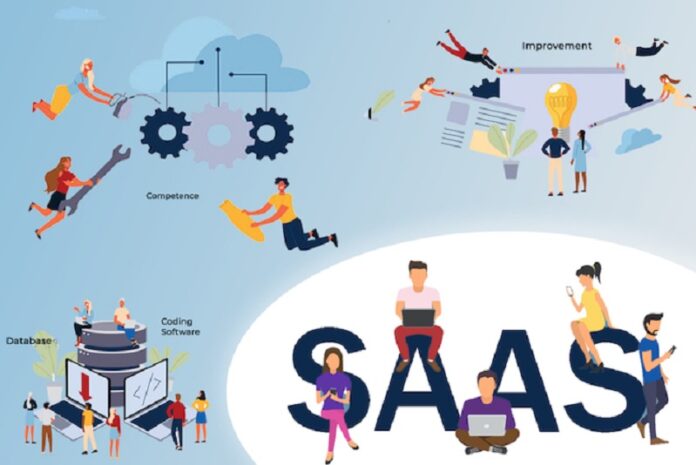In recent years, the financial technology (fintech) sector has witnessed a remarkable transformation, driven by the advancements in software and technology. One significant contributor to this revolution is the rise of (Software as a Service) SaaS solution development companies. These companies play a dominant role in shaping the fintech landscape by providing innovative and efficient software solutions that address the unique challenges faced by the industry. In this article, we will explore the various ways in which SaaS solution development companies are revolutionizing the fintech sector.
1. Introduction
The fintech sector encompasses a broad range of financial services and technologies that leverage software solutions to enhance efficiency, improve customer experiences, and drive innovation. SaaS solution development companies are at the forefront of this transformation, providing specialized software products tailored to the unique requirements of fintech businesses.
2. Understanding SaaS Solutions
Software as a Service (SaaS) solutions refers to cloud-based software applications that are hosted and maintained by a service provider. These solutions are accessed over the internet and do not require users to install or manage the software locally. Instead, users can simply subscribe to the service and access it from any device with an internet connection.
3. The Need for SaaS Solutions in Fintech
The fintech industry faces numerous challenges, including complex regulatory requirements, data security concerns, scalability issues, and the need for advanced analytics capabilities. SaaS solution development companies recognize these challenges and work closely with fintech companies to develop tailored solutions that address their specific pain points.
4. Benefits of SaaS Solutions for Fintech Companies
Enhanced Security and Compliance
Fintech companies handle sensitive financial data and must adhere to stringent security and compliance standards. SaaS solution development companies understand these requirements and implement robust security measures to protect data privacy, ensure compliance with regulations, and mitigate the risk of data breaches.
Scalability and Cost Efficiency
One of the key advantages of SaaS solutions is their scalability. Fintech companies often experience rapid growth and need software solutions that can scale seamlessly with their expanding user base. SaaS solutions provide the flexibility to adjust resources and capacity based on demand, enabling fintech companies to optimize costs and avoid infrastructure limitations.
Streamlined Operations and Improved Efficiency
SaaS solutions streamline operations by automating manual processes, reducing paperwork, and integrating various functions into a single platform. This leads to improved efficiency, increased productivity, and faster time-to-market for new financial products and services.
Customization and Integration Capabilities
SaaS solution development companies offer customizable solutions that can be tailored to the specific needs of fintech companies. They also provide integration capabilities to seamlessly connect with existing systems and third-party applications, enabling a cohesive and interconnected fintech ecosystem.
Data Analytics and Business Insights
Data is a valuable asset in the fintech industry. SaaS solutions offer advanced analytics and reporting functionalities that allow fintech companies to derive meaningful insights from their data. These insights can drive informed decision-making, identify trends, and uncover new business opportunities.
Collaboration and Communication
SaaS solutions facilitate collaboration and communication within fintech organizations. They enable seamless sharing of information, real-time collaboration among teams, and effective communication with customers, resulting in improved customer experiences and streamlined internal workflows.
5. Future Trends and Innovations
The fintech sector is constantly evolving, and SaaS solution development companies play a pivotal role in driving innovation. Some future trends and innovations in this space include the use of artificial intelligence (AI) and machine learning (ML) for advanced data analysis, the integration of blockchain technology for secure transactions, and the emergence of open banking platforms that enable seamless integration with financial institutions.
6. Conclusion
SaaS solution development companies have emerged as key players in revolutionizing the fintech sector. Their innovative software solutions address the unique challenges faced by fintech companies, providing enhanced security, scalability, efficiency, customization, data analytics, and collaboration capabilities. As the fintech industry continues to evolve, the role of SaaS solution development companies will only become more crucial in driving technological advancements and shaping the future of finance.
FAQ
Q1: How do SaaS solutions benefit fintech companies?
A1: SaaS solutions offer enhanced security, scalability, streamlined operations, customization options, advanced data analytics, and improved collaboration, all of which are highly beneficial for fintech companies.
Q2: What makes SaaS solutions ideal for the fintech sector?
A2: SaaS solutions are ideal for the fintech sector due to their cloud-based nature, scalability, cost efficiency, and the ability to address specific regulatory and compliance requirements.
Q3: Can SaaS solutions be integrated with existing fintech systems?
A3: Yes, SaaS solutions can be seamlessly integrated with existing fintech systems and third-party applications, allowing for a cohesive and interconnected fintech ecosystem.
Q4: What future trends can we expect in the fintech sector?
A4: Future trends in the fintech sector include the use of AI and ML, blockchain integration, and the rise of open banking platforms for seamless integration with financial institutions.
Q5: How can SaaS solution development companies drive innovation in fintech?
A5: SaaS solution development companies drive innovation in fintech through the implementation of advanced technologies, such as AI, ML, and blockchain, and by continuously improving their software offerings to meet the evolving needs of the industry.
Must Read: Using Technology to Improve Your Trading: What You Need to Know?



































































